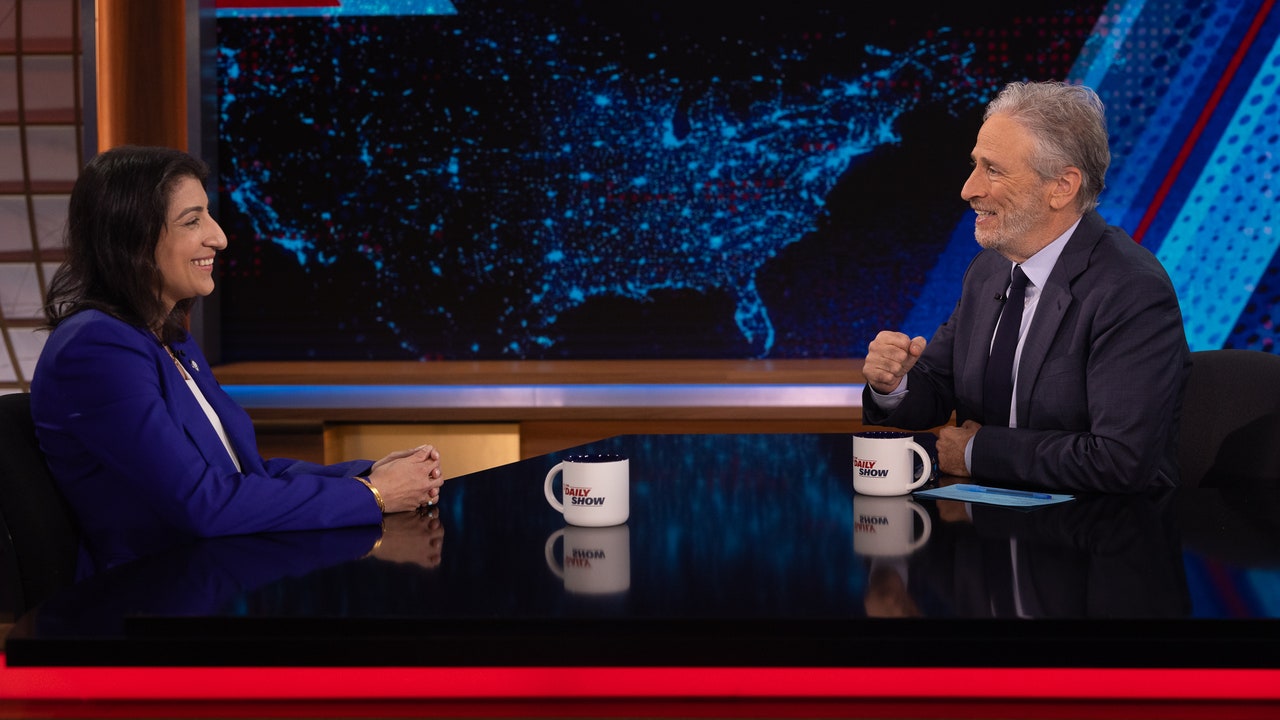- cross-posted to:
- usnews@lemy.lol
- antitrust@lemmy.ml
- cross-posted to:
- usnews@lemy.lol
- antitrust@lemmy.ml
This week, Jon Stewart devoted his edition of The Daily Show to tackling a topic that he claims his former bosses at Apple barred him from exploring. “I wanted to have you on a podcast and Apple asked us not to do it,” the late-night host said to his guest Monday night, Federal Trade Commission Chair Lina Khan, referencing the companion podcast to his former series, The Problem with Jon Stewart that ended last October. “They literally said, ‘Please don’t talk to her.’”
Stewart’s remarks arrive less than two weeks after the U.S. Justice Department sued Apple for exploiting its monopoly in the tech market and violating antitrust laws. The lawsuit highlights Apple’s “power over content creators and newspapers” and notes that the company’s conduct “even affects the flow of speech,” adding, “Apple is rapidly expanding its role as a TV and movie producer and has exercised that role to control content.”
After joking that Apple killed Khan’s potential appearance on the podcast because “I didn’t think they cared for you,” Stewart alleged that Apple also told him not to discuss artificial intelligence. “They wouldn’t let us do even that dumb thing we just did in the first act on AI,” he said, referring to a segment earlier in that episode on the “false promise” of that technology. Stewart then asked Khan: “What is that sensitivity? Why are they so afraid to even have these conversations out in the public sphere?”
Khan replied, “I think it just shows the danger of what happens when you concentrate so much power and so much decision making in a small number of companies.”



I sympathize with the cynicism in your last paragraph, but I push a little optimism back on a couple points. 1: our capability for speech may be limited by the corporations who have grabbed control over our media platforms, but insofar as freedom of speech refers to our ability to speak freely without retaliation from the government, we do still have real free speech. It’s a juvenile point, but given events in the last few years it’s not a right I take for granted as I did previously. That being said, I did just watch a video of FBI agents interrogating a woman in front of her house for posting non-violent content on Facebook relating to Gaza that you can add to a pile of evidence that the government is frequently toeing the line on free speech, so… that’s not good.
2: Regulatory authority has become almost laughably meek, granted, but you’re commenting on a video of one of the most aggressive regulators to hold the position in as long as I’m aware. This is a powerful sign that regulatory capture is not inevitable if we care enough to vote for candidates who will appoint strong regulators – even if it hurts our pride to do so (<<conscientious vote objectors).